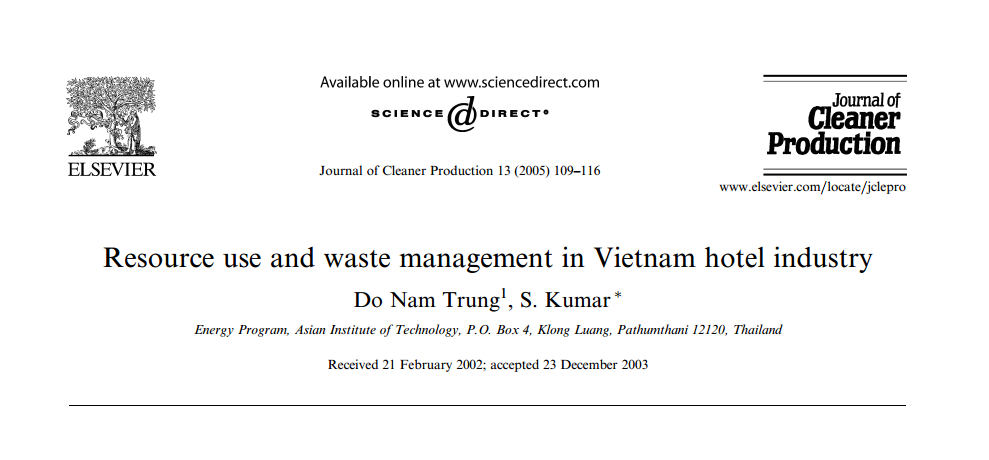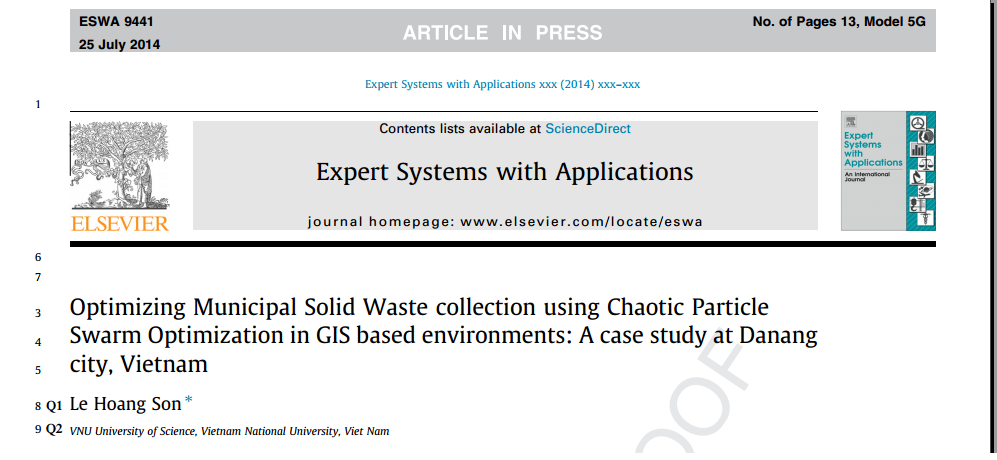REPORTS & PUBLICATION
REPORTS

Beyond the Waste Bin: A Waste Management Continuum
2010 | United Nations Environment Programme
Presentation by :Beyond the Waste Bin:Hari SrinivasUnited Nations Environment ProgrammeInternational Environment Technology Centre Ask any City Mayor on Waste … Inefficient collection system / No collection system Financial constraints Apathy and/or Lack of participation of citizens on programmes Set-up and alternatives to sanitary land-fill system Waste segregation at source Recycling of solid waste Disposal of hospital and/or hazardous solid waste Treatment of food waste and/or biodegradables High cost of establishing new and modern disposal system such as plasma technology Concept that "waste management" is a municipal responsibility No standard for management of solid waste in country Amount of waste increases with urbanization Disposal of plastic dishware
National 3R Strategy Development
2009 | IGES
The Programme of National 3R Strategy Development was initiated as one of the outcomes of the Ministerial Conference on the 3R Initiative held in Tokyo, Japan, in March 2005. The project was funded by the Ministry of the Environment of Japan and the Asian Development Bank (for Viet Nam only) and jointly implemented by the United Nations Centre for Regional Development (UNCRD), the United Nations Environmental Programme / Regional Resource Centre in Asia and the Pacific (AIT/UNEP RRC.AP), and the Institute for Global Environmental Strategies (IGES). In anticipation of Asia’s serious waste and resource-related challenges together with the region’s rapid economic development, the project has aimed to disseminate and raise awareness on the 3R concept and to foster strong political leadership for the 3R implementation in Asian countries.

Resource use and waste management in Vietnam hotel industry
2005 | Elsevier
The hotel industry of Vietnam is expanding rapidly with increasing international arrivals and domestic tourists. At the same time, mounting costs of resources and impacts of waste could affect the income, environmental performance and public image of the hotel sector. The hotel industry resource management (energy and water) would contribute to the long-term sustainability of the tourism sector. This paper reports the results of a study conducted to assess the resource use and management in the hotel industry in Vietnam. This was obtained by carrying out a survey in 50 hotels on energy and water consumption, and waste generation. The energy and water use, as well as the waste generated in the various hotel categories have been estimated and compared with those in other countries. The current practices in the hotels to address these issues are highlighted, and benchmarks for efficient use of resources in Vietnamese hotels are presented.
Pacific Environment Outlook
2004 | UNEP
The Pacific Environment Outlookwas prepared simultaneously with the Pacific Regional Assessment on SustainableDevelopment to feed into the Barbados +10 process and ensure consistency of much of reporting.Much of theinformation has been drawn from national and regional reporting to the World Summit on Sustainable Development(WSSD), preparations for the Barbados +10,and from key reports for international and regional multilateralenvironmental agreements.The Pacific Environment Outlookpresents environmental trends by assimilating the drivers that directly and indirectlyaffect the state of the environment.It examines the linkages between social and economic activities and theenvironment in the Pacific SIDS,highlighting their social,economic and environmental vulnerability.The use of nationalassessment reports for the Barbados +10 has enabled the portrayal of national and regional priorities in terms ofthematic environmental issues and cross-cutting institutional capacity needs.

Optimizing Municipal Solid Waste collection using Chaotic Particle Swarm Optimization in GIS based environments: A case study at Danang city, Vietnam
2014 | Elsevier
Municipal Solid Waste (MSW) is an increasing concern at any municipality in the world, and is one of the primary factors that contribute greatly to the rising of climate change and global warming. MSW collection and disposal especially in the context of developing countries are indeed the urgent requirements for the sustainable development of environment and landscape, which rule over the quality-of-life and life expectancy of human being. In this paper, we concentrate on MSW collection at Danang city, which is one of four largest municipalities in Vietnam having high quantity of the average waste load per person and is bearing negative impacts of climate change such as severe weather conditions and natural disasters as a result. A novel vehicle routing model for the MSW collection problem at Danang city is presented. A novel hybrid method between Chaotic Particle Swarm Optimization and ArcGIS is proposed to generate optimal solutions from the vehicle routing model of Danang. Experimental results on the real dataset of Danang show that the proposed hybrid method obtains better total collected waste quantity than the relevant ones including the manual MSW collection procedure that is currently applied at this city.
Future waste - waste future
2014 | Sage
Future waste" is a term not yet established in the waste community; actually it is a paradoxon. Future waste" is not dealing with current solid waste, but products that will become waste in the future. Due to advances in science and technology and priorities in politics, large quantities of these, often technologically complex, products have already entered the anthropogenic stock within a short period of time or are about to do so in the near future. As the majority of these items have relatively long life spans they will not immediately play an important role in waste management, however, once the product life time is over meaningful quantities of this future waste" will be generated. At that time we need to have appropriate waste management solutions available as these wastes: (1) contain valuable resources (e.g. precious metals and critical raw materials, usually in very low concentrations) and (2) pose specific new challenges to prevent hazards associated with their treatment (e.g. nano-materials).
 The kNOwWaste Knowledge Platform was developed through a Project Cooperation Agreement funding by UNEP on 2016. The platform provides data and information on holistic waste management to stakeholders in Asia and the Pacific region. The platform was developed with the following aims: generate and consolidate data or information on holistic waste management, transform data into easily comprehensible outputs for use by key stakeholders, map out and disseminate information on international waste management projects under the GPWM and UNEP projects as well as other international partners, and provide capacity building support through dissemination of data or information support for relevant stakeholders on holistic waste and waste management system.
The kNOwWaste Knowledge Platform was developed through a Project Cooperation Agreement funding by UNEP on 2016. The platform provides data and information on holistic waste management to stakeholders in Asia and the Pacific region. The platform was developed with the following aims: generate and consolidate data or information on holistic waste management, transform data into easily comprehensible outputs for use by key stakeholders, map out and disseminate information on international waste management projects under the GPWM and UNEP projects as well as other international partners, and provide capacity building support through dissemination of data or information support for relevant stakeholders on holistic waste and waste management system.
 2024 © Regional Resource Center for Asia and the Pacific (RRC.AP). All Rights Reserved.
2024 © Regional Resource Center for Asia and the Pacific (RRC.AP). All Rights Reserved.
